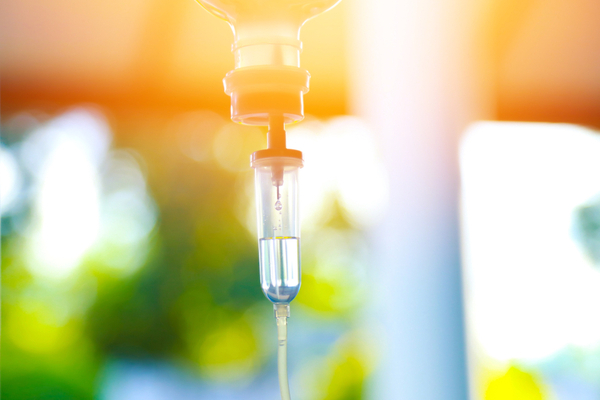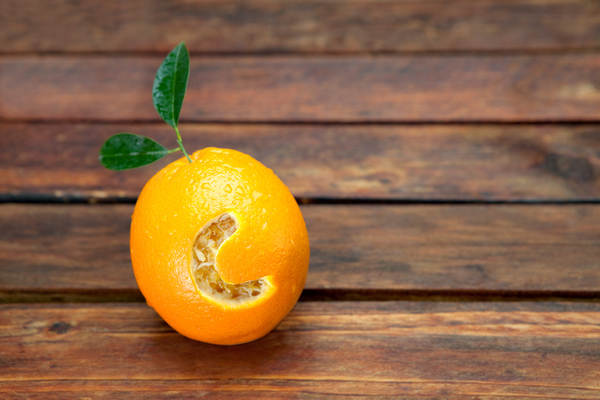With today (Apr 4) being National Vitamin C Day, we highlight the importance of vitamin C and how it boosts your immunity to fight off coronavirus, and all viruses.
By Sarah Rodrigues

The medical industry is always working to treat and prevent illness – most recently, of course, COVID-19. With symptoms at their most mild being likened to flu, it’s no wonder vitamin C is being examined as potentially beneficial: after all, many of us tend to guzzle orange juice at the first sign of a sniffle, or dose up on supplements.
And vitamin C has already been shown in numerous previous studies to be able to fight off viruses and respiratory tract infections.
Back in February, a trial began in China to look at whether high doses (up to 24,000mg per day) of intravenous vitamin C (IVC) could be useful in treating coronavirus. The study is not due to be completed until September, but early results are extremely promising. Some medical professionals are saying the vitamin should be administered as soon as possible after COVID-19 diagnosis for best results.
Medical authorities in China, including the chief of emergency medicine at Shanghai’s Ruijin Hospital, have claimed that high-dose IVC treatment has resulted in the recovery and discharge of several patients with moderate to severe cases of COVID-19. The IVC dosing was for 7-10 days, with 10,000mg per day administered to those with moderate cases and 20,000mg per day for more severe cases.
An official statement from X’ian Jiaotong University Second Hospital, said that ‘early application of large doses of Vitamin C can have a strong antioxidant effect, reduce inflammatory responses, and improve endothelial function… high-dose Vitamin C can not only improve antiviral levels, but, more importantly, can prevent and treat acute lung injury (ALI) and acute respiratory distress (ARDS).’
Are there alternatives?
But what are the benefits of IVC as opposed to, say, downing a handful of capsules or munching a ton of fruit? It is often claimed that supplements, despite what their stated doses are, will only ever deliver a tiny amount of that into the bloodstream. This is because the digestive system compromises the vitamins’ efficacy and the body ends up excreting most of their contents. Proponents of IV vitamins say that by bypassing the gut and going straight into the bloodstream, the vitamins stay in their most potent form and can be immediately pushed into the cells where needed.
‘Vitamin C is essential to the normal functioning of the immune system but since it cannot be produced by or stored in the body, it must come from diet and/or supplementation,’ says Bianca Estelle, clinical director of Vitamin Injections London, where they offer IVC in dosages ranging from 1000-10,000mg+. ‘The absorption rate of vitamin injections is more than 99 per cent in comparison to just 15 per cent or less with oral supplements.’
Bianca says that, as well as ensuring the body gets the full, intended dose, this method of delivery also swerves the issue of stomach irritation, which can result from large doses of tablets or powdered vitamin C.
Dr Michael Barnish, Head of Genetics and Nutrition at REVIV agrees. ‘IV Vitamin C has no limit compared with oral preparations,’ he says, adding that we should, of course, always aim to get plenty of vitamin C from our diet as well.
‘When nutrients are absorbed orally, the gut determines how much we can absorb in one go,’ he says. ‘When we want to increase our cellular uptake of vitamin C fast, bypassing the gut should be considered. Intravenous dosing has no upper limit and is deemed very safe, even at super-high doses.’
Any down side?
The disadvantage, of course, is that in most cases IV administering of vitamins will require you to visit a clinic, which may present problems if you are unwell or isolating. Cost is another implication – expect to pay around £100 per injection at least once or twice or month for best results. However, Dr Barnish points out that just as aesthetic treatments have become more accessible and affordable with the growth of the industry, so too will IV vitamin infusions as the industry expands.
But there are also those who think IV is neither useful nor necessary. ‘A better and cheaper alternative is liposomal vitamin C, which offers huge benefits by way of efficient absorption but sustained release over time,’ says Tariq Karim, founder of London’s Santi Clinic.
Liposomal vitamins are formulated so the active ingredients are contained within microscopic spherical particles called liposomes – essentially, synthetically manufactured fat cells. Because our cell membranes are also made of fat, liposomal vitamins bond to these membranes, ensuring the nutrients are delivered rather than washed away and excreted, as is more often the case with powdered vitamin C. And as with IVC, liposomal C can also be taken in high doses without negative side effects i.e. gut upset.
However you choose to boost your intake, there’s no doubt that your health will thank you for it.
Can’t get to the clinic? Try these instead…
Altrient C
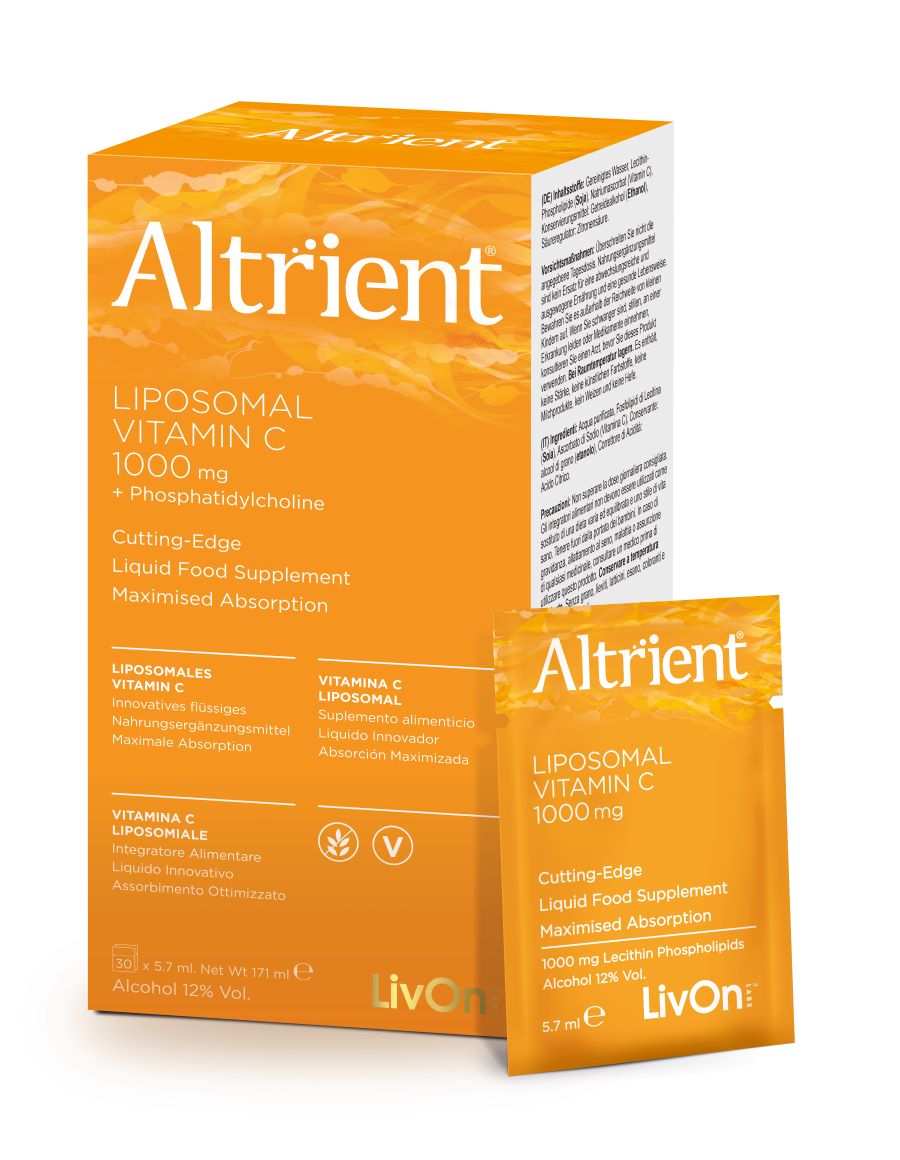 This liposomal supplement (£39.99) contains 1000mg of vitamin C. Liposomal technology is able to increase the absorption of nutrients, allowing you to benefit from a high dose of vitamin C without the unwanted gastrointestinal side effects of other high dose supplements.
This liposomal supplement (£39.99) contains 1000mg of vitamin C. Liposomal technology is able to increase the absorption of nutrients, allowing you to benefit from a high dose of vitamin C without the unwanted gastrointestinal side effects of other high dose supplements.
Neutrient Total C
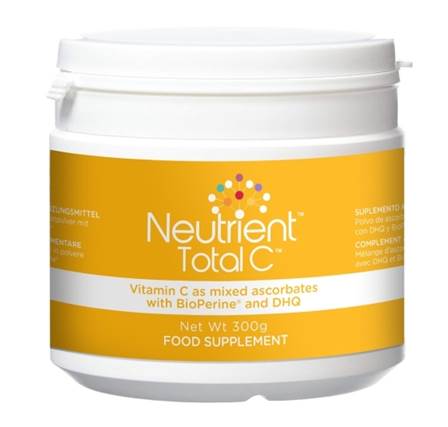 Neutrient™ TOTAL C™ vitamin c powder (£59.99) features a unique blend of mixed ascorbates and antioxidants to support the body’s natural immune defence process. Perfect for popping into your morning smoothie!
Neutrient™ TOTAL C™ vitamin c powder (£59.99) features a unique blend of mixed ascorbates and antioxidants to support the body’s natural immune defence process. Perfect for popping into your morning smoothie!
Vitalti
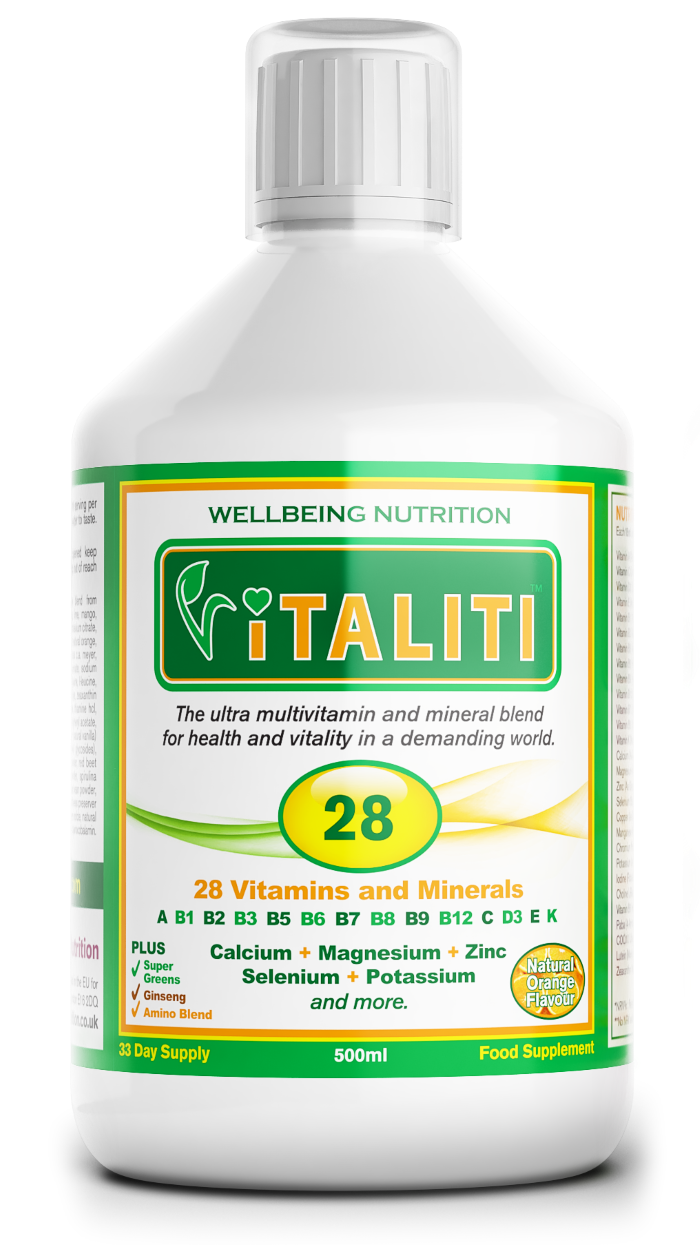 Vitaliti (£24.95 for one or £16.65 each when purchasing three bottles at the same time) is a one-shot liquid supplement packed with 28 vitamins and minerals. One dose of Vitaliti includes 500mg of vitamin C!
Vitaliti (£24.95 for one or £16.65 each when purchasing three bottles at the same time) is a one-shot liquid supplement packed with 28 vitamins and minerals. One dose of Vitaliti includes 500mg of vitamin C!

